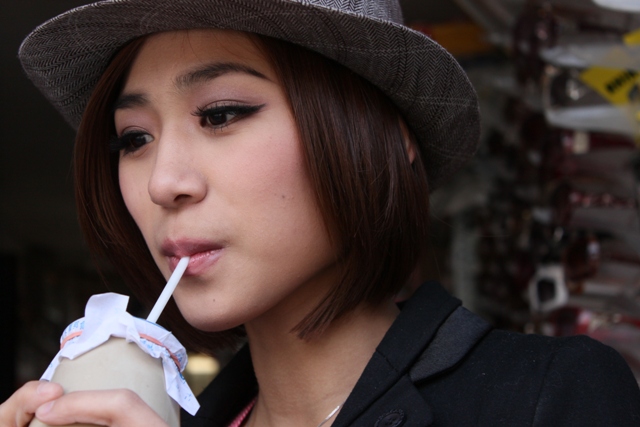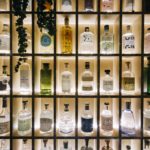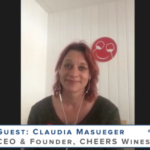Booming of Detox Drinks in China: A Shifting Strategy
To know more about the Detox Drinks in China, contact us at dx@daxueconsulting.com
Booming of Detox Drinks in China: Companies are shifting their strategy to meet the increasing demand
According to market research conducted by Daxue Consulting, the Chinese are one of the world’s most health conscious people. This is likely because food scandals occur frequently in China, and the food safety standards are very low compared to other countries. Hence Chinese consumers tend to be more and more aware of what they put in their mouths. For these reasons, there is a “health wave” sweeping across China, with increased consumer awareness of the health and nutritional benefits of the food and drinks that they consume. This has paved the way for a large demand for detox drinks in China.
The market size of China’s health beverage industry reached ¥840 billion in 2015 with an average annual growth rate of 16.6 percent since 2010. Says Tian Mayim, co-founder and CEO of V Cleanse, one of China’s first cleanse companies: “It’s a booming industry, and it has all happened in the span of three years”. Forbes magazine claims that “spending on health and wellness has seen tremendous growth over the last decade – the market is poised to reach nearly $70 billion by 2020 – a result of both rising incomes and awareness about wholesome living among a growing middle and upper class.”
Which consumers are driving the growth of the detox market, and who are the key players therein? What are the characteristics of the market and what opportunities have yet to be exploited sufficiently?
Where is the health trend and demand for detox drinks the strongest?
Maymin claims that millennials above all are taking their health into their own hands. “They want high-quality products to ‘cure’ their ailments and prove them through their day while feeling good about it. Juice cleanses cover all of that.” A similar health trend has existed in the West for some time. Indeed, Euromonitor International dubbed the wellness sector “the next trillion-dollar industry.” China is now following fast, and in some aspects – leading ahead.
There has been a recent shift in the drivers of this growth, from young expats to young Chinese people. For instance, since their launch in 2013, V Cleanse has gone from mainly catering to expats, to catering a client base that’s 90 percent Chinese. Although there is a health trend in both the West and the East, they have manifested themselves differently. Detox drinks are often warm, as Chinese consumers are more accustomed to and prefer warm drinks over cold drinks, in contrast to their Western counterparts.
The health trend is the strongest in China’s major cities, such as Shanghai and Beijing, but it has also spread to other and less developed cities. “If you were born in the 80s and live in a first- to the third-tier Chinese city, chances are you’re into healthy living”, says Mayim. Chinese urbanites are increasingly showing a penchant for “all natural”, a keen eye for food labels and, as a result, the willingness to pay for premium health food.
What are the market opportunities for detox drinks in China?
 Although the detox drink market in China is relatively fragmented, with many different similar-sized businesses competing, there are nonetheless some brands that stand out. One of these is Totox (whose tagline is “better than botox”), which is a healthy, all-natural hot drink for young people. It has become the rage amongst post-90s female millennials in Beijing, Shanghai, and Guangzhou, partly because of the endorsement and investment it received from the popular Chinese celebrity Angelababy.
Although the detox drink market in China is relatively fragmented, with many different similar-sized businesses competing, there are nonetheless some brands that stand out. One of these is Totox (whose tagline is “better than botox”), which is a healthy, all-natural hot drink for young people. It has become the rage amongst post-90s female millennials in Beijing, Shanghai, and Guangzhou, partly because of the endorsement and investment it received from the popular Chinese celebrity Angelababy.
There are many opportunities to penetrate the detox drink market by offering customised drinks. However, it is important to keep in mind that Chinese consumers demand drinks that are both tasty and healthy. This also means that they are willing to pay a premium.
There are different ways to market your detox drink, and different channels to use to penetrate the market. Some detox drink brands simply sell their drinks in stores and supermarkets, whereas others rely on subscriptions and a continual delivery of detox drinks. The latter approach allows detox drink businesses to build close relationships with its consumer base, which is what Totox has done. Totox peddles its detox drink as an herbal dietary supplement, and its price range is a lot lower than juice cleanses, starting at RMB 158 for a 7-day period, and RMB 398 for 28 days. “We operate mostly on social media and mobile platforms, which is what millennials like about us”, says Totox co-founder Wu Jueling.
As the market continues to mature, and detox drinks become more and more commonplace and consumers become more price sensitive, the time might also be right for a low-cost detox brand to make its mark on the Chinese detox drink market.
In conclusion, the detox drink market has experienced a strong growth in China recently. This is largely attributable to higher incomes and increased health awareness amongst Chinese consumers. The latter is particularly true of ">Chinese millennials, where the health trend is the strongest. Although presently Chinese consumers are willing to pay a premium, as the market continues to mature, the time might be ripe for low-cost brands to enter the market and capture market share.
Case Study: Food & Beverage Industry
One of Daxue’s clients wanted to accelerate its business growth in China by expanding its portfolio of healthy food products. This was in order to exploit opportunities in China’s increasingly health conscious society. Daxue Consulting helped the client to identify the business opportunities in this highly competitive market, targeting both the growing Chinese middle-class and the lower income populations.
Daxue Consulting provided them with an in-depth contextual understanding of the market and implemented the following stages of work:
- Desk research in order to have a clear picture of the client’s needs.
- 12 focus groups in Shanghai and Beijing, and Guangzhou.
The quantitative research enabled the client to refine their product and to develop a stronger market strategy. It enhanced their social engagement with consumers.
See also our partner – DaxueDoxa – strategy advisory firm Beijing















